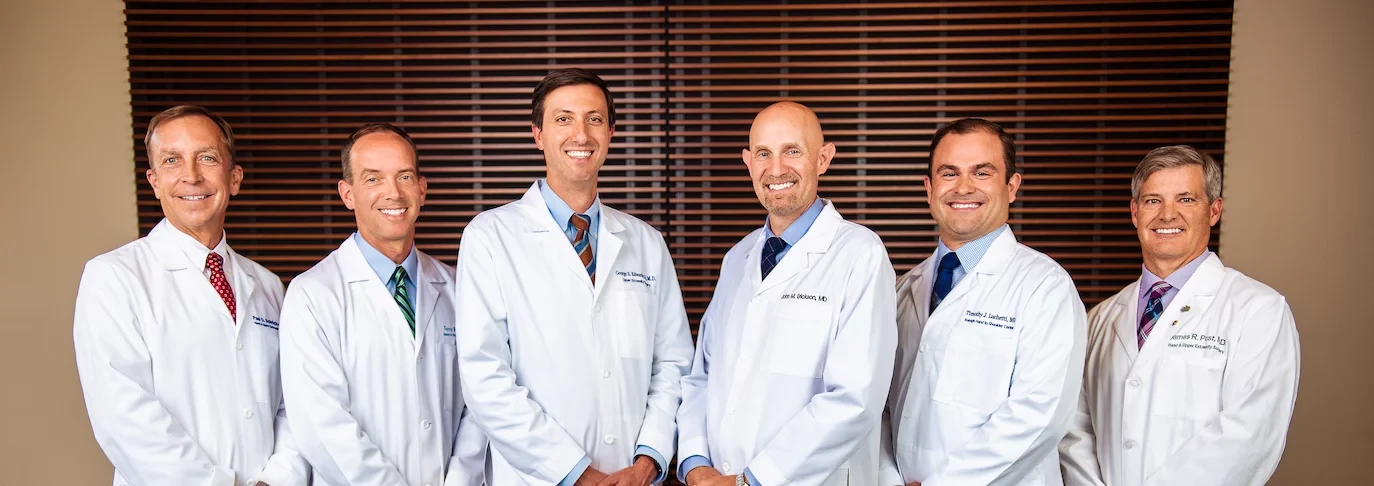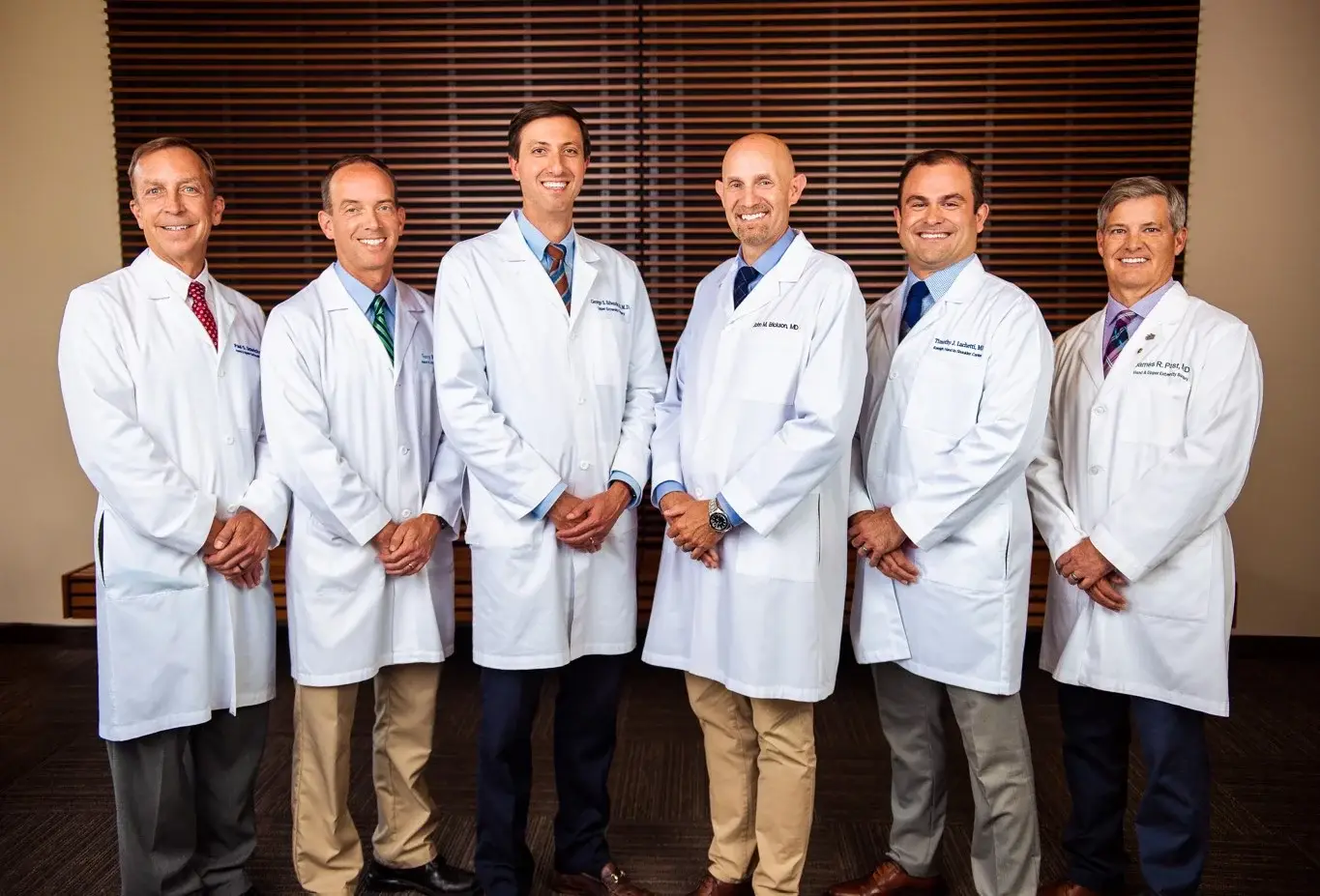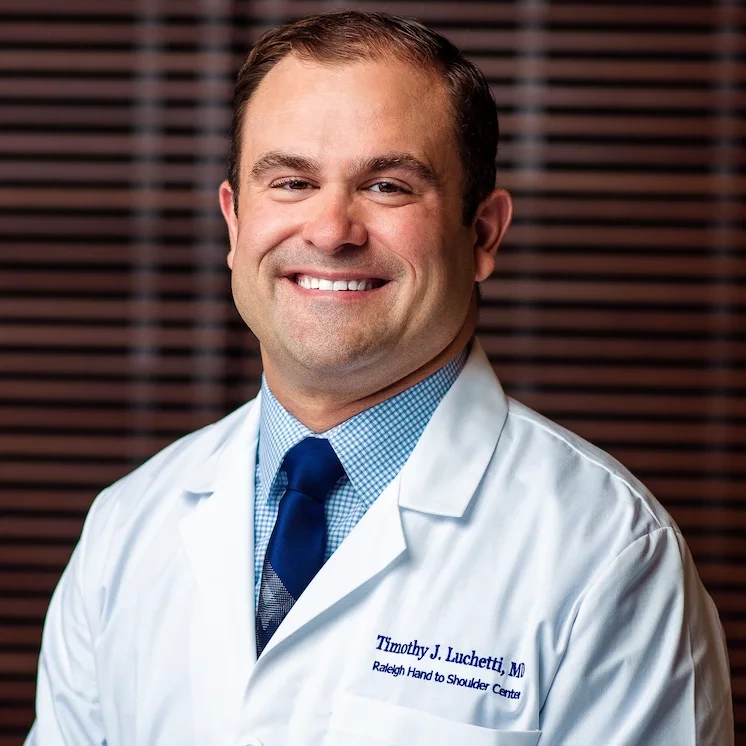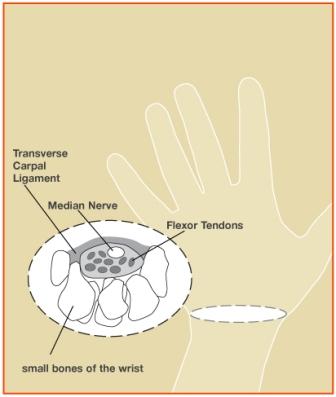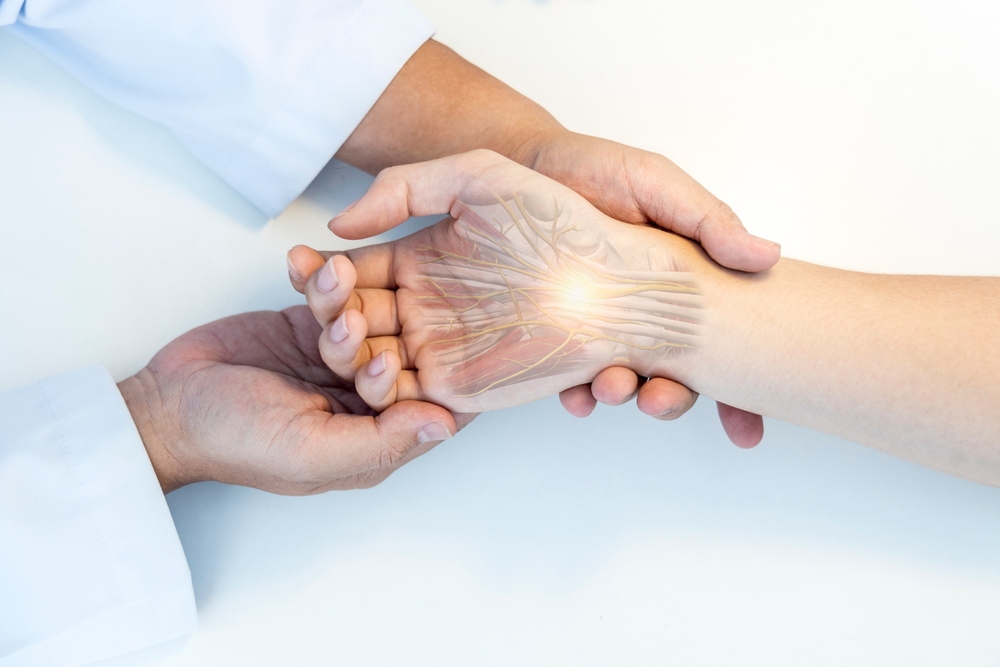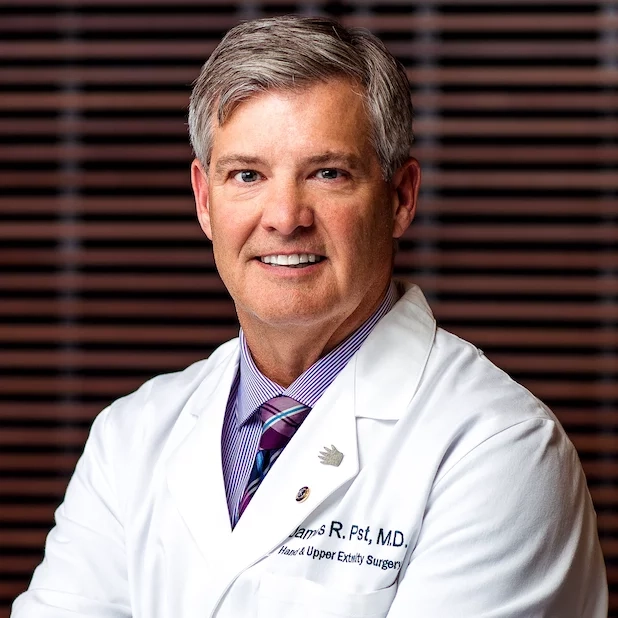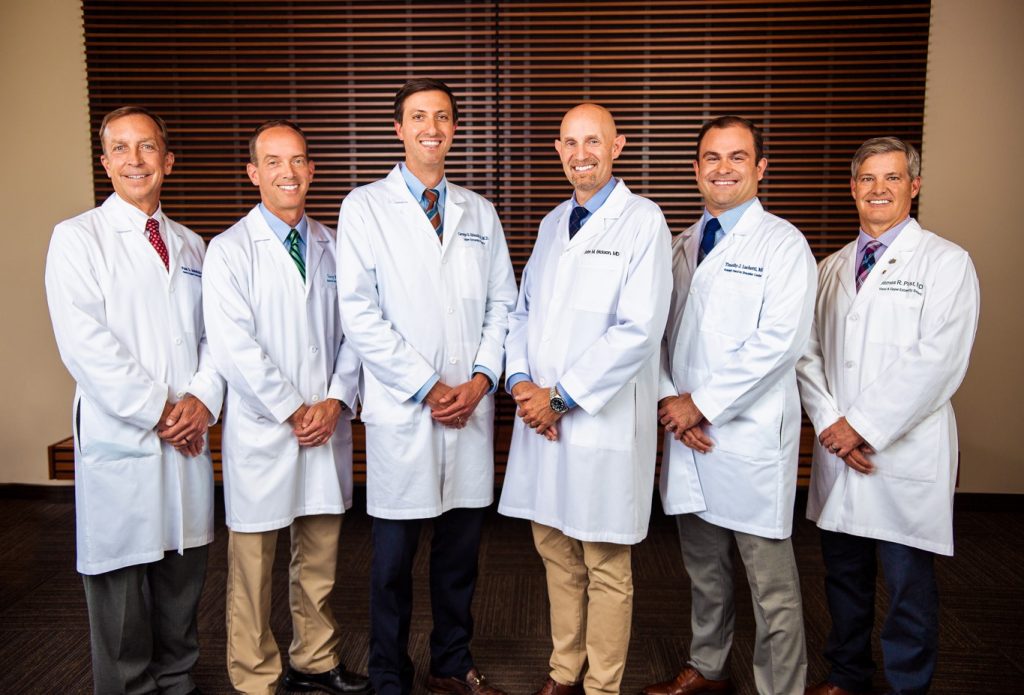Dupuytrens contracture is a common disease of the hand. This condition is known for increased fibrous tissue formation in the palms of the hands and in the fingers. Early in the course of the disease process, nodules of fibrous tissue develop in the palm. In some patients these nodules develop into cords which gradually bend the fingers into a flexed position. Over time, the finger joints become stiff and more difficult to straighten. This is called a flexion contracture. Severe contractures in the fingers can develop which significantly impair the use of the hand. Patients often have problems putting on gloves and shaking hands. Dupuytrens contracture treatment is available in Raleigh, NC.
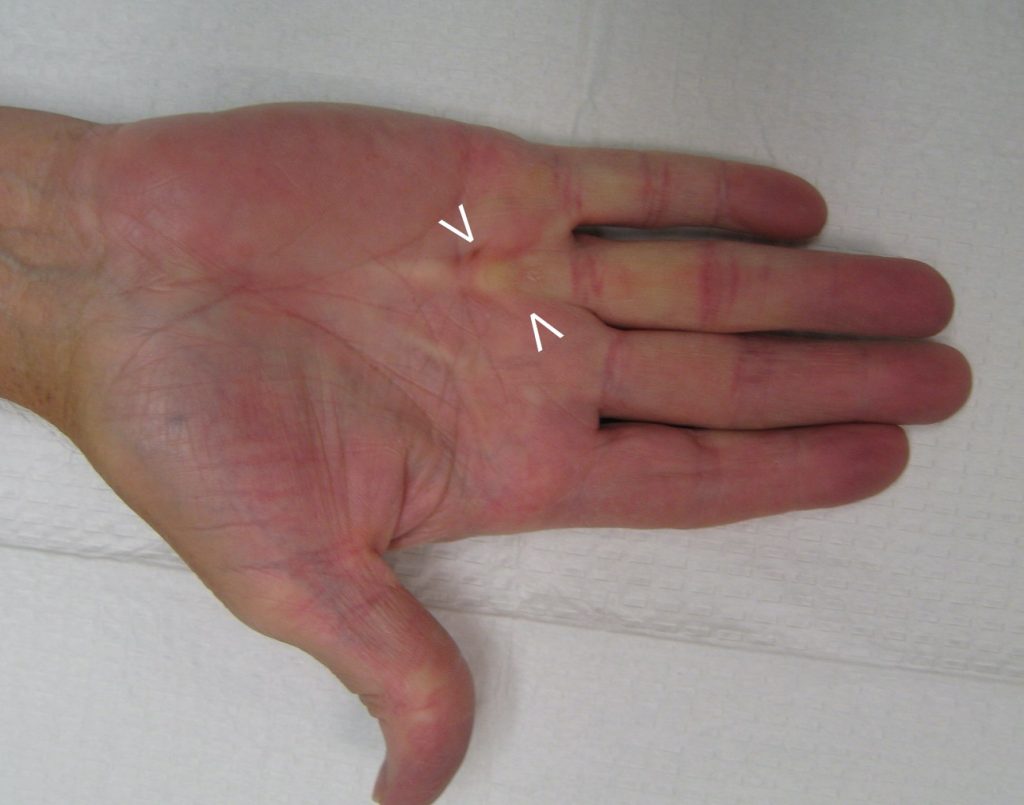
Doctors have known about Dupuytren’s disease for many centuries. The condition is named after Dr. Dupuytren who was a French surgeon in the 1800s. The condition has also been called “Viking’s disease” because it is more common in people with Scandinavian ancestry. Research has increased over the past several decades. However, there is still much to be learned about Dupuytren’s.
Risk factors for Dupuytrens Contracture
Risk factors for Dupuytren’s disease include male sex, family history of the condition, Northern European ancestry, smoking, alcohol abuse, and diabetes. People with Dupuytren’s disease are also prone to plantar fibromatosis (Lederhosen), penile fibrosis (Peyronies), and adhesive capsulitis (frozen shoulder).
Treatment options for Dupuytrens Contracture
Treatment options are available for Dupuytren’s disease at various stages of the disease process. Currently, there are no cures for Dupuytren’s and no proven way to slow down the disease process. Corticosteroid injections (cortisone shots) are sometimes used to reduce pain, itching, or discomfort from Dupuytren’s nodules in the palm. Steroid injections can shrink and soften the nodules in most patients, however, the nodules often come back in the future. Radiation treatment is considered controversial for Dupuytren’s disease.
When a joint contracture has developed from a Dupuytren’s cord, there are two non-surgical treatments for Dupuytren’s contracture: needle aponeurotomy and collagenase injections. Both procedures can be performed in the office. These procedures can significantly improve finger range of motion and patients have a much quicker recovery compared to surgery. Patient satisfaction is usually high for these procedures. Not all patients are candidates for these procedures. If patients are treated in the mild to moderate stages of contracture, the results are usually good to excellent and frequently last many years.
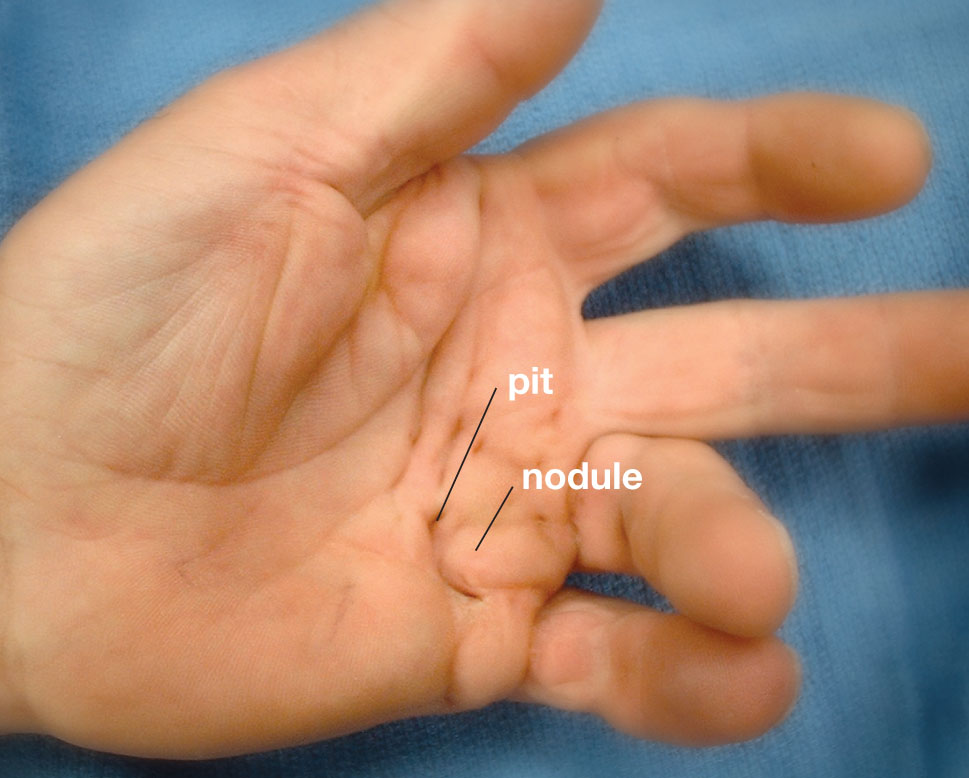
Needle Aponeurotomy for Dupuytrens Contracture
Needle Aponeurotomy (NA) is a minimally-invasive procedure performed with local anesthesia numbing medicine in the office. The Dupuytren’s cord is perforated with a needle tip. NA is particularly useful when the primary contracture is in the palm or when a patient cannot have surgery due to medical problems. Recurrence is common with this technique, but it is a simple and inexpensive technique that can give some relief for a few years and may be repeated for recurrent contractures. Not all patients are candidates for this technique and complications include skin tears, infection, and nerve injury.
Collagenase for Dupuytrens Contracture
Collagenase injections (Xiaflex) were FDA approved for use in the United States in 2010. The collagenase enzyme injection is used to help dissolve Dupuytren’s cords. The injection is performed in the office and the cord is manually “popped” by the surgeon in 1 or 2 days. Although the period of time before a contracture recurs is unpredictable, recurrence of the contracture is common following collagenase injections. Not all patients are good candidates for this injection. Possible complications from collagenase injections include: tendon ruptures, skin tears, bruising, allergic reactions, and lymph node swelling.
Dupuytrens Contracture Surgery
Dupuytrens Surgery is the tried-and-true treatment for Dupuytren’s contractures in the fingers. Surgery can be performed safely in the operating room to improve finger range of motion and quality of life when patients are not candidates for the non-surgical options. This surgery is performed in the operating room under a regional block anesthetic as an outpatient. This procedure often provides good to excellent results in patients with mild to moderate joint contractures. Patients will be treated with splinting, wound care, and hand therapy for a few weeks during the recovery process after surgery. Make an appointment with a hand specialist to learn about Dupuytren’s and the treatment options recommended for your case.
Raleigh Hand to Shoulder Doctors are experts in diagnosis and treatment of Dupuytrens contracture. They are all members of the American Society for Surgery of the Hand and board certified by the American Board of Orthopedic Surgery.



